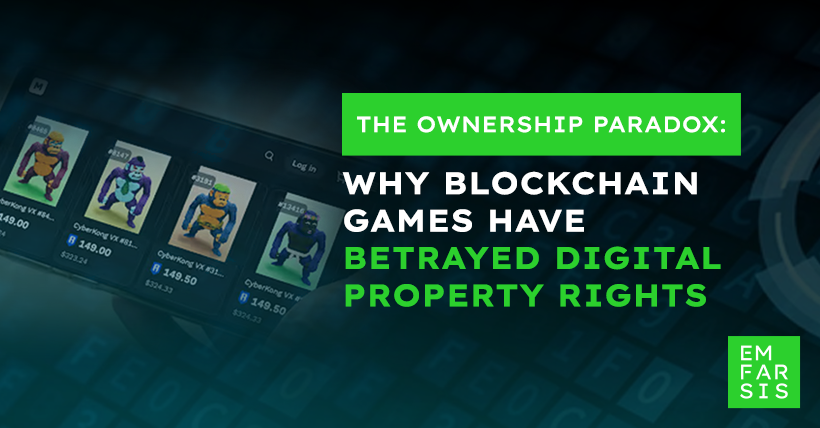This is a summary of the op-ed “The Ownership Paradox: Why Blockchain Games Have Betrayed Digital Property Rights” by Leah Callon-Butler, published on CoinDesk on December 20, 2024.
Every year, the Blockchain Game Alliance (BGA), with the help of Emfarsis, conducts an industry-wide survey, in which digital asset ownership has consistently emerged as the defining feature of Web3 games. In the 2024 report, over 71% of respondents still named it as their biggest benefit to gaming, and it has consistently been named as such since the survey’s inception in 2021, despite a shift among Web3 games towards free-to-play models with no digital asset ownership requirements to participate.
This shift was necessary. Access to games via NFTs was a major sticking point amongst interested gamers, even during the peak of the play-to-earn boom. Axie’s scholarship system tried to address this issue, but this only created a bottleneck that prevented rental demand from being met. In response, an increasing number of Web3 games have adopted free-to-play models to encourage more players to join in. In the op-ed “The Ownership Paradox: Why Blockchain Games Have Betrayed Digital Property Rights,” Emfarsis Director Leah Callon-Butler argues that Web3 games may have overcorrected in their pursuit of accessibility. They have sidelined the very concept of ownership that they claimed differentiated Web3 gaming.
“The reality is: even if you “own” an NFT, its utility and value often depend entirely on the developers’ centralized infrastructure and ongoing operations. What Web3 does offer is increased agency over your assets, allowing for quicker, frictionless sales. But true ownership? Not so much.”
This half-hearted approach risks sidelining blockchain’s potentially transformative applications, like interoperability of in-game assets across multiple games. As Leah wrote, “On one hand, ownership is what makes blockchain games special; on the other, requiring it deters players.” Developers have prioritized accessibility to attract traditional gamers who lack Web3 familiarity. The 2024 BGA State of the Industry Report attests to this, with more than half of the respondents citing onboarding challenges and poor user experience as the biggest challenges in the industry.
With that said, there have been very promising experiments with fully onchain games (FOCG), like the composable Loot NFT collection and new token standards (e.g., ERC-6551, 4337, 404, and SBTs). They hint at potential advancements that can unlock experiences that wouldn’t have been possible without digital property rights. Today’s games often bury their blockchain elements as part of the tech stack rather than a defining feature. The challenge now is to let players experience the fun first and discover the value of ownership organically. Even then, Web3 builders shouldn’t be ashamed to stand up for what they believe in.
Read the full article here: “The Ownership Paradox: Why Blockchain Games Have Betrayed Digital Property Rights” by Leah Callon-Butler. Published December 20, 2024, on CoinDesk.

